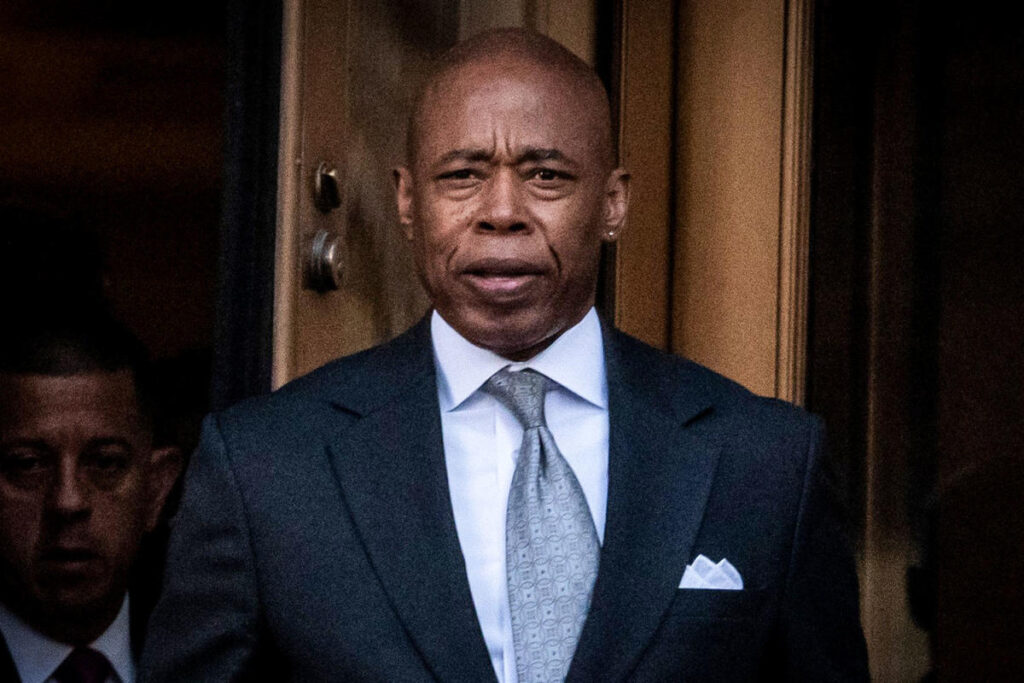New York City Mayor Eric Adams recently sparked controversy for his actions at a UFC event that many interpreted as a gesture of reverence toward Donald Trump, which effectively turned the event into a rally for Trump’s supporters. This incident highlights a potential shift in tactics among certain Democratic officials who are opting for a more conciliatory approach to engaging with powerful figures in the Republican Party, including Trump. Alongside Adams, other Democratic leaders such as Rep. Ritchie Torres and Colorado Governor Jared Polis also exhibited similar tendencies during the weekend. Their actions reflect a growing willingness to collaborate, or at least be seen in a favorable light with influential, albeit polarizing, figures like Elon Musk and Robert F. Kennedy Jr.
Rep. Ritchie Torres openly supported Musk despite backlash from his liberal base, expressing disdain for their criticisms of the tech billionaire. His stance raises questions about the priorities of some Democratic officials who may be positioning themselves politically in anticipation of Trump’s presidency. While many on the left are gearing up for fierce opposition to Trump’s potential return to power, others seem to be leaning into diplomatic engagement. Such strategies may be aimed at fostering unity or obtaining political favors, but they risk alienating constituents who are staunchly opposed to Trump’s policies and rhetoric.
Governor Jared Polis, on the other hand, surprised many by endorsing the health views espoused by conspiracy theorist Robert F. Kennedy Jr., which some interpret as a bid to appeal to a broader audience, including those outside the traditional Democratic base. This outreach strategy aligns with a trend among several Democratic leaders who are attempting to navigate the increasingly contentious political landscape by softening their criticisms of Trump and his associates. Polis stands as part of a coalition of Democratic governors advocating for the protection of democracy against perceived threats, yet his recent overtures raise questions about the sincerity and effectiveness of such alliances in countering Trumpian populism.
Senator Chris Coons also joined this cavalcade of unexpected endorsements, highlighting Musk’s initiative aimed at improving government efficiency, which he claims could lead to substantial savings. However, while Coons did express some criticisms of Trump’s Cabinet picks during an interview, the overall tone of his remarks reflected a similar, if not slightly more critical, approach that is still laced with a desire for cooperation. This ambivalence in the Democratic response to prominent figures like Trump and Musk illustrates the balancing act many in the party are attempting to achieve as they brace for a possibly tumultuous political future.
Critics of Adams, Torres, Polis, and Coons have commented on their apparent eagerness to win favor, showcasing a level of subservience that may backfire in the long run. While constructive dialogue can be essential for political progress, the eagerness to appease powerful figures known for their controversial stances may jeopardize the integrity and principles of the Democratic Party. This sentiment seems to be echoed by constituents who are wary of normalization regarding Trump’s return and are concerned about the implications this approach may have on policy and governance as the country inches closer to the next presidential election.
As the 2024 election cycle approaches, the strategic choices made by these Democratic officials reveal a complex interplay between pragmatism and idealism. While schmoozing may appear to be a viable tactic for gaining political leverage in a polarized environment, there is a risk that it undermines the party’s foundational commitments to justice and accountability. The penetrating question remains: will this conciliatory approach yield positive outcomes or will it simply embolden those who threaten the very democracy these leaders profess to protect? As they navigate this uncertain political terrain, the outcomes of their strategies will become clearer in the months and years ahead.

